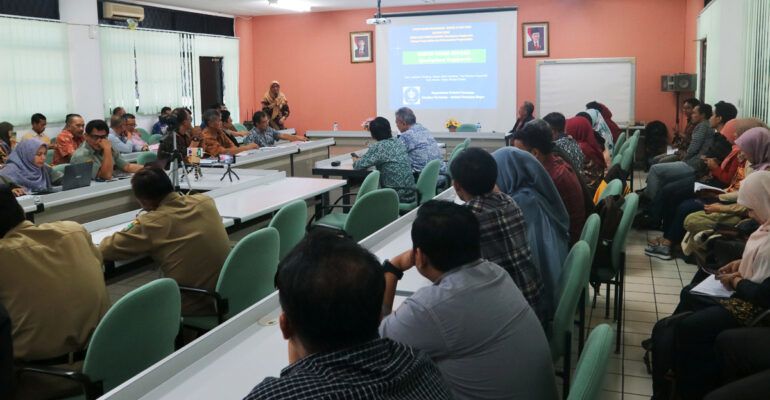Quick Action of Plant Protection Department of IPB University in Responding to Fall Armyworm Attack

Department of Plant Protection, Faculty of Agriculture, IPB University immediately responded to the attack of fall armyworm (Spodoptera frugiperda) on corn plants lately by holding a Focus Group Discussion (FGD) in Conference Room 1 of the Department of Plant Protection, IPB Dramaga Campus, Bogor (7/15). This FGD is a quick response to the invasion of Spodoptera frugiperda or Fall Armyworms (UGJ) which attack corn plants in several regions in Indonesia. Based on reports from the IPB University research team, these pests have spread in several provinces in Indonesia, namely West Sumatra, North Sumatra, Aceh, Lampung, West Java, Central Java, and West Kalimantan.
The Chairperson of the Institute for Research and Community Service (LPPM) of IPB University, Dr. Ir Aji Hermawan revealed that a quick response to the community’s problems is important. “Obstacles that occur in the community need to be solved immediately. They cannot be solved alone, thus, cooperation between various parties is needed,” said Dr. Aji Hermawan.
He also admitted that this was the second quick response done by the research team of the IPB University’s Plant Protection Department. The first one was when the brown planthopper attacked the rice crop a few years ago.
With the quick response from various parties, Dr. Aji hoped that the UGJ pests problem can be overcome immediately. This is because Indonesia is a corn producer, and the central government is actively promoting corn production programs in various regions in Indonesia.
The Dean of the Faculty of Agriculture of IPB University, Dr. Ir Suwardi also agreed that efforts to respond to the UGJ attack must be done as early as possible. “UGJ is a pest that has just come to Indonesia and quickly spread and damaged corn plants. Of course, this must be anticipated and responded immediately so that recommendations can be made immediately to overcome the attack,” said Dr. Suwardi.
He added, corn is an important commodity for Indonesia. With corn production of 5.2 tons per hectare and the area of corn plantations increasing to 5.7 million hectares, control of UGJ pests can be done immediately.
“This FGD could produce a control formulation that can be used by the community in the corn plantations. Hopefully, it could also detect the presence and attack purpose of the pests,” concluded Dr. Suwardi. (Rosyid/Zul/zsp)


